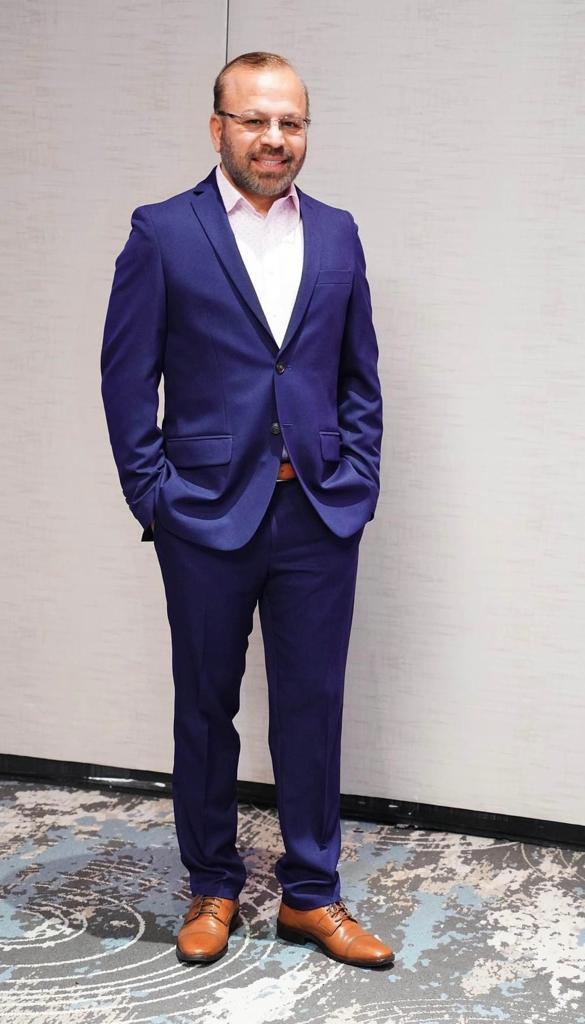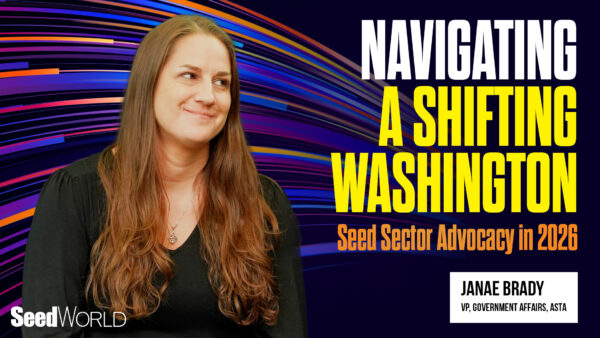We at the Minnesota Crop Improvement Association (MCIA) are generating attention with our innovative efforts. Here’s why we think our path is beneficial to Minnesota farmers and might be a path others want to follow too.
In June this year, MCIA was awarded AOSCA’s first annual Excellence in Innovation Award (thank you AOSCA. It is a great honor). In his presentation of the award, AOSCA’s president Andy Altishin highlighted some of the work we do to help train and inform international colleagues.
MCIA has hosted delegates from Croatia, Somalia, India, and Zimbabwe, and delivered on-site and on-line talks at the United Nations Food and Agricultural Organization (FAO) and several agricultural universities in Pakistan. Most recently, MCIA hosted an 18-person delegation including faculty, researchers, and administrators from various Zimbabwean universities learning to learn about germplasm licensing. MCIA also held an on-site OECD seed schemes training roundtable discussion at the UN FAO office in Islamabad, Pakistan with officials from Pakistan’s Federal Seed Certification and Registration Department and key stakeholders from the Pakistan seed industry participating.

After the award ceremony, we were frequently asked why a state-specific crop improvement organization would make an effort to promote the seed sector so far from our state’s borders. Some people ask with great tact: “How do you manage to keep up with your regular work and add international work too?” Others were more direct: “Why are you wasting time helping international farmers when your mandate — right there in your agency’s name — is to improve Minnesota’s crops?”
These are great questions. Let me explain.
In the U.S., seed certification has been in place for more than a century to guarantee genetic integrity and varietal identity. The number of certified acres has decreased over time, especially recently. This presents a dilemma for us since we not only support certified seed acres but also because seed certifying agencies are fee-for-service organizations: we receive no funding from the government, academic institutions or other sources. Our capacity to continue providing essential services to Minnesota’s agricultural sector hinges on our ability to develop novel diversification strategies. If creative revenue sources are not pursued, seed certifying organizations risk running into financial difficulties.
Through the USDA National Organic Program (NOP), we launched an organic certification program more than 20 years ago. In addition, we’ve developed a non-GMO grain traceability scheme and various third-party audit programs that are both product and process verified. Do each of our programs produce significant returns on their investments? Admittedly not. Everyone who has tried to launch something new has experienced a variety of results: some take off, some drag, and some never even get off the ground. But over time and in the grand scheme of things, diversifying strengthens our bottom line.
The financial benefits of our efforts may not always be clear right away. A component to long-term success is getting on people’s radar screens by increasing MCIA’s visibility and making MCIA a relevant and reliable partner. By regularly attending industry meetings and trade shows, we make every effort to work with companies and partners very, very closely. We show our capacity through our outside-the-box projects. And then, when there is an industry need, who do they think to call? We are right there, front and center, with our reputation for integrity, service quality and creativity preceding us.
U.S. seed is very much in demand internationally. Likewise, U.S. expertise is in demand too. Over the last few years, we’ve been building a reputation for being an education, outreach, and training resource for international seedsmen. It costs us little: the delegates come to us, we share our knowledge for a few hours, they continue their trip. Though these efforts don’t generate direct revenue, it’s important to remember that the seed industry is increasingly global. A sizeable number of seed grown and certified in Minnesota is destined for export markets. Our germplasm might be suited to perform in another region. If we build international relationships one handshake at a time, that can directly benefit Minnesota companies and Minnesota agriculture.
Our goal is to diversify without ever compromising the high levels of service we offer in our core services. Agriculture is cyclical. From June to October, our field staff are focused exclusively on inspecting crops for certification. From late October through May, our seed lab gets busy testing seed samples. Field personnel inspect seed-conditioning facilities over the winter. Our senior management team collaborates on new concepts, finds solutions, and follows up with clients throughout the year, but particularly in the winter, in order to take on more projects.
We are frontrunners in diversification but by no means the only state seed certifying agency pursuing it. I do believe there is a desire for innovation across seed certification even if staffing, expertise and other resource limitations slow the speed of uptake.
What I love most about this industry is its collaboration. If we’re open to new ideas, other points of view, and — yes — diversification, seed certifying agencies have a strong future.
Dr. Fawad Shah is the MCIA’s President and CEO.











